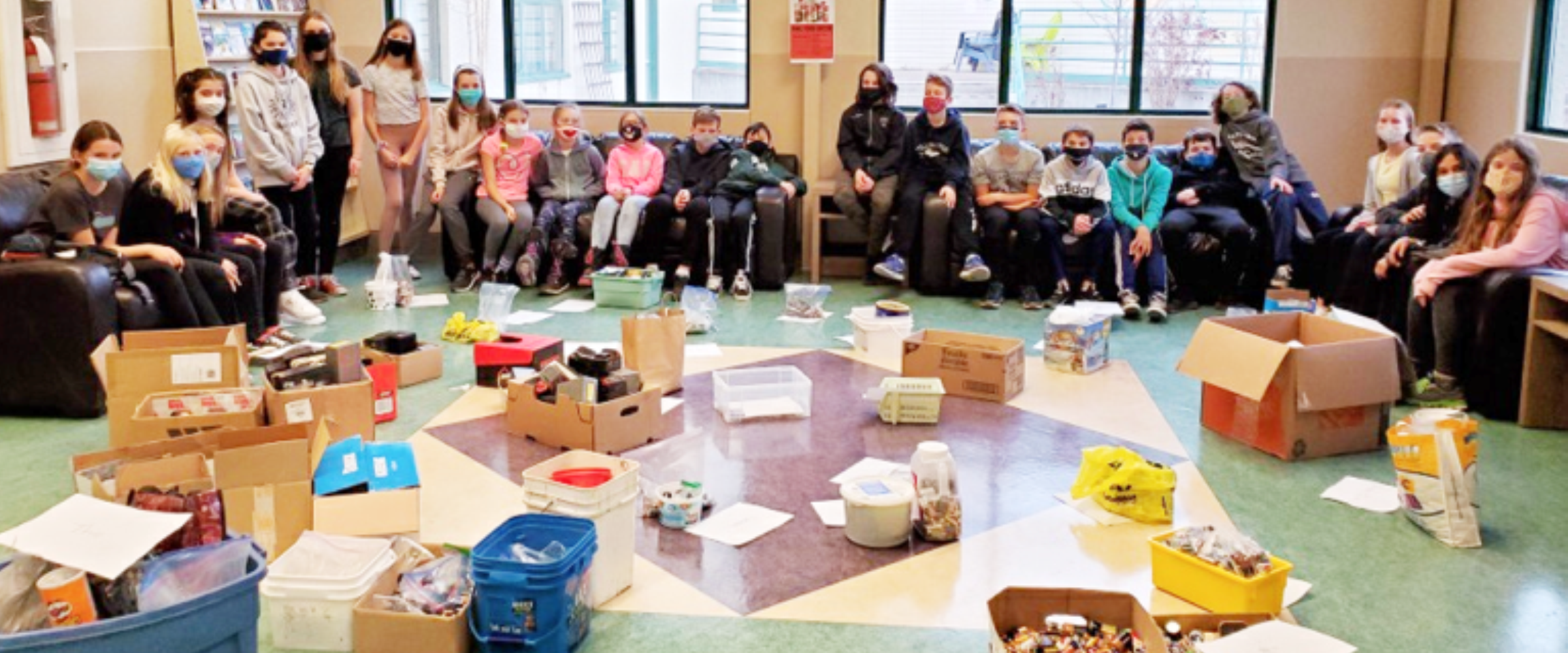School District 83 (North Okanagan-Shuswap) has been involving their students in some very interesting activities as of late, including teaching them about the importance of recycling!
More Brain Bikes Coming to Schools
Shuswap Rotary is helping schools bring 19 more Brain Bikes into SD83 schools and they should arrive before the holiday break. For those who haven’t seen them, brain bikes help in numerous ways to get the brain primed for learning.
Since 2015, Shuswap Rotary has cost shared with schools to bring over one hundred brain bikes into SD83 schools. The feedback from teachers and students has been overwhelmingly positive. Brain bikes help to get students in the zone for learning either by using the bikes as a quick brain break or using the bikes while learning, like Isla (pictured on left) at M.V. Beattie, who is moving while learning!
Schools placed orders for the additional 19 brain bikes this spring. Unfortunately, due to the COVID -19 pandemic, the order had to be cancelled. The order has now gone through and eight schools should be receiving their new bikes in the near future!
Thank you to Shuswap Rotary, for all your support.
Battery Recycling Challenge
Shuswap Middle School (SMS) has recycled 1,500 pounds of used batteries during the school’s recent battery recycling challenge. Hosted by Jaimie Vezina’s Grade 6/7 class, SMS students, staff and families have stepped up to make a difference, even during this unusual time.
Staff and students first embraced this contest with a plan to be proactive in addressing a local environmental issue that can affect everyone, explains Principal Sydney Griffith. “Together as a thoughtful team of young scientists, activists and learners, the students have collected over 1,500 pounds of used batteries. These batteries will not go to the local landfill and we are celebrating. We know this took a lot of parental support and we appreciate everyone’s help with this awesome effort!”
Why is recycling batteries so important anyway? Here is what the students have learned:
- Batteries decay & rot!
Batteries begin to rot in landfill sites quite quickly. The chemicals leak into the ground, which cause soil and water pollution. When chemicals contaminate soil and water then animals, humans and the environment can be seriously harmed. - Batteries can catch fire!
If we send our batteries out in the trash they can cause a fire in the truck or in the landfill. Of course, landfill fires can cause serious large scale air pollution. By recycling our batteries through a battery recycler, we can avoid this fire risk for our community. - There are expensive materials in batteries!
Recycling our batteries reduces the need for raw materials and conserves resources. Battery production relies on materials such as lithium, nickel, and cobalt. The iron in all battery types is recovered to make new goods. The cadmium recovered from nickel-cadmium batteries is used to make new batteries. The nickel in nickel-metal hydride batteries is recovered to make steel. Cobalt, nickel, and copper can be recovered from lithium batteries.
These stories have been reproduced with permission from School District 83 (North Okanagan-Shuswap). The original postings can be found here and here.


